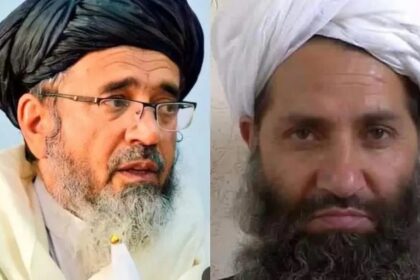RASC News Agency: A respected Afghanistani religious scholar, Mawlawi Abdul Malik, has reportedly been hospitalized in critical condition after enduring two weeks of enforced disappearance and torture at the hands of the Taliban. Local sources in Panjshir province confirm that the former deputy head of the Panjshir Ulema Council was transferred to a medical facility in Rokha district, suffering from severe physical injuries and signs of psychological trauma. According to family members and sources close to Mawlawi Abdul Malik, Taliban forces detained him on July 8, while he was leading prayers at a mosque in Kabul’s District 15. He was forcibly taken to an undisclosed location, and for days, his family was kept in the dark regarding his whereabouts or condition. Only later did they discover that he had been transferred to a detention center in Taliban-controlled Panjshir.
Medical professionals treating Mawlawi Abdul Malik have described his condition as “grave,” citing both physical injuries and psychological distress consistent with prolonged torture. Physicians are currently evaluating internal trauma and other long-term health complications resulting from what one source described as “sustained, deliberate abuse.” This is the second time the Taliban have targeted the cleric. In 2022, Mawlawi Abdul Malik was also arrested on allegations of affiliating with the National Resistance Front (NRF), a claim his family has firmly rejected as politically motivated and devoid of evidence. His repeated detention highlights the Taliban’s growing hostility not only toward political dissent but also toward independent religious authorities who refuse to toe the regime’s extremist ideological line.
For years, Mawlawi Abdul Malik served as a leading Islamic educator in Panjshir, where he held positions as deputy head of the provincial Ulema Council and director of the religious schools “Mawlawi Abdul Wahid” and “Bibi Ayesha Sediqa” in Darah-Abshar. His work earned him respect across religious and community lines. That respect, however, appears to have made him a threat in the eyes of a regime increasingly intolerant of autonomous voices in the religious sphere. Under Taliban rule, dissent whether political, civil, or theological has become a punishable offense. Human rights organizations report that over the past four years, the Taliban have arrested thousands of individuals accused of links to resistance movements, including the NRF. These arrests are often arbitrary, devoid of due process, and frequently accompanied by reports of torture, forced confessions, and incommunicado detention.
The Taliban’s targeting of prominent clerics like Mawlawi Abdul Malik underscores a deeper crisis: the regime’s effort to monopolize religious discourse and suppress any form of spiritual authority not explicitly under its control. In doing so, the group betrays not only human rights norms but also the fundamental principles of Islamic jurisprudence, which uphold justice, consultation, and the sanctity of life. International observers have repeatedly sounded the alarm over the Taliban’s systematic use of torture and arbitrary detention. Detainees ranging from civil society activists to former government workers and religious leaders are frequently subjected to beatings, isolation, and psychological coercion. Such practices not only violate international law but also expose the regime’s increasing reliance on fear to govern a population already battered by conflict, poverty, and institutional collapse.
In the case of Mawlawi Abdul Malik, the Taliban’s brutality has once again laid bare the regime’s inability to tolerate independent thought even from those who have dedicated their lives to religious service. His arrest, and the apparent torture he endured, represents not just an assault on one man, but a broader attempt to extinguish any moral counterweight to Taliban authority. As Afghanistan continues to endure the suffocating grip of Taliban rule, the fate of voices like Mawlawi Abdul Malik raises a chilling question: how many more must suffer in silence before the world chooses to listen?






